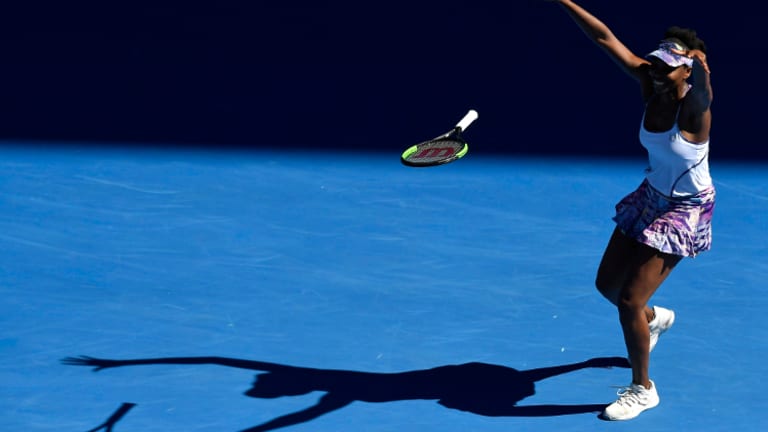After what we just witnessed, it’s hard to believe that Venus Williams hasn’t been to a Grand Slam singles final since 2009, at Wimbledon, or that she hasn’t reached the title match at a hard-court major since 2003, when she did so in Melbourne. But 14 years after that run Down Under, the No. 13 seed—and, if you want more unlikely numbers, at 36 years of age—will compete for Australia’s top tennis prize. The veteran put forth a vintage performance in front of a delighted and enthralled crowd in Rod Laver Arena, and she needed every bit of it to defeat compatriot Coco Vandeweghe, 11 years her junior, by a 6-7 (3), 6-2, 6-3 margin.
Venus needed every timely serve, every uppercut groundstroke and every bit of accumulated sage determination to overcome this challenge, for we also saw some of Vandeweghe’s best tennis. As she’d shown in Oz during impressive upsets of Angelique Kerber and Garbine Muguruza, Vandeweghe belted forehands and backhands to all areas of the blue court. She hit 37 winners in all, and despite her 51 unforced errors, this was a match of the highest quality, one of the best contests of the fortnight.
“It means so much,” a joyous Venus said afterwards, “mostly because she played so well. There was never a moment of relaxation, ever.”
